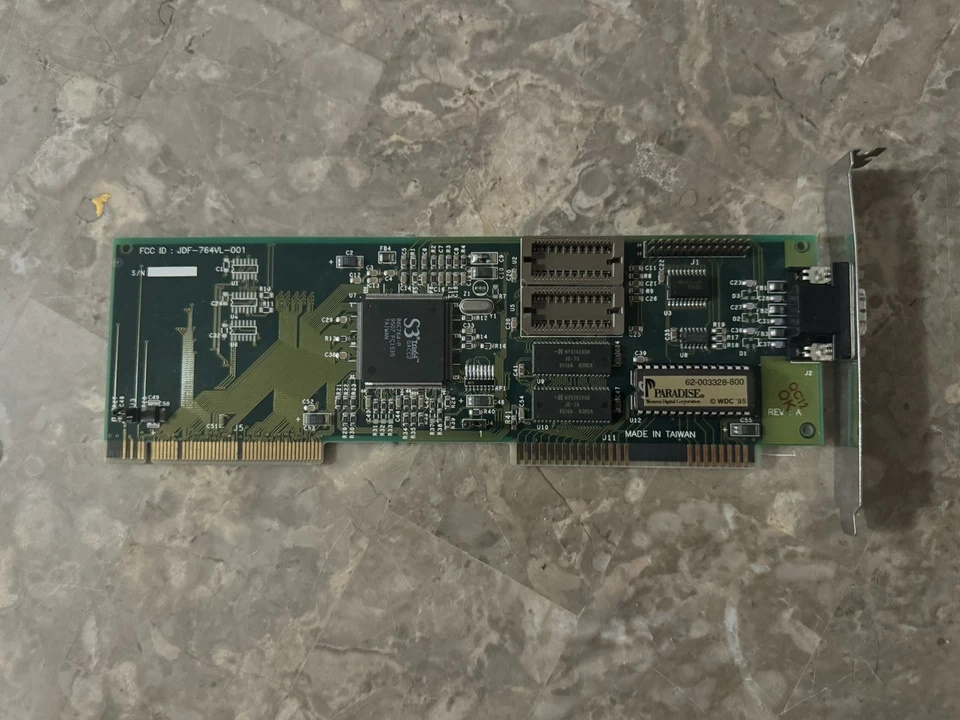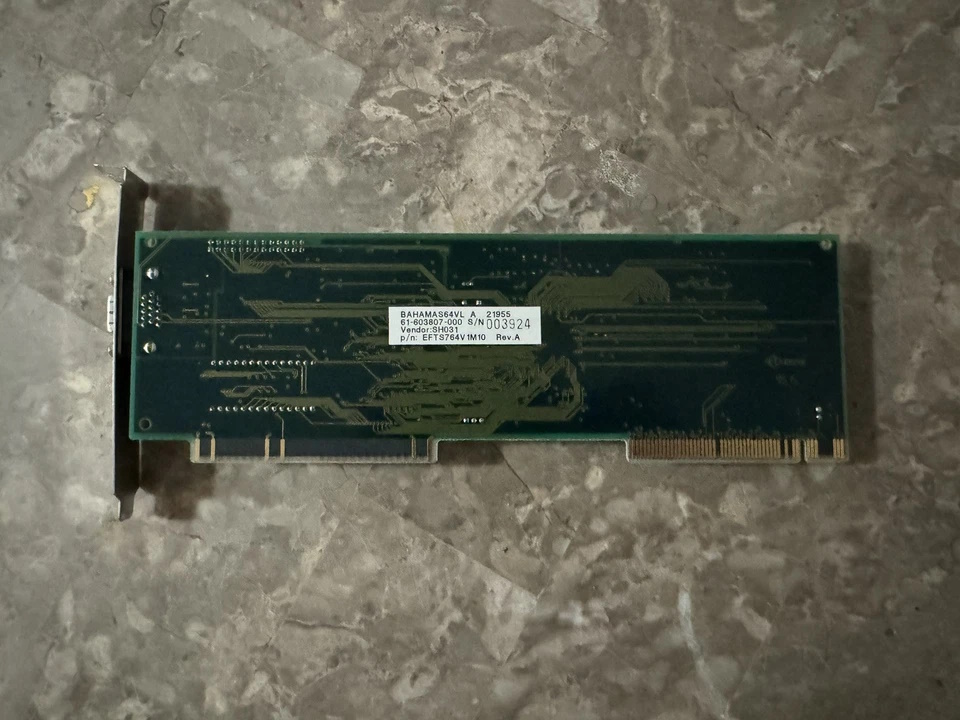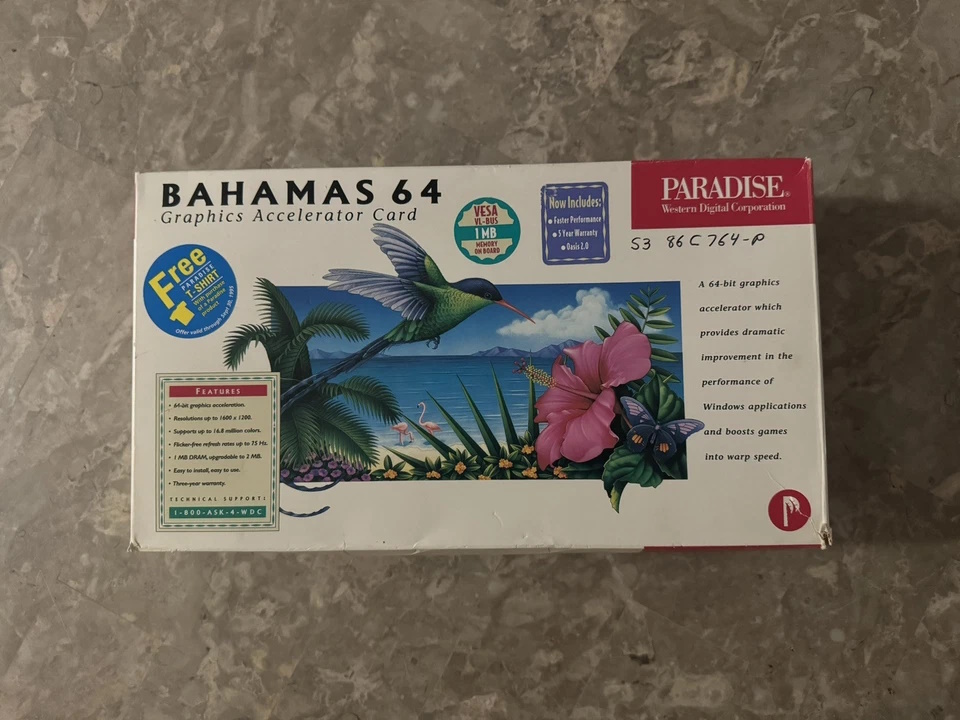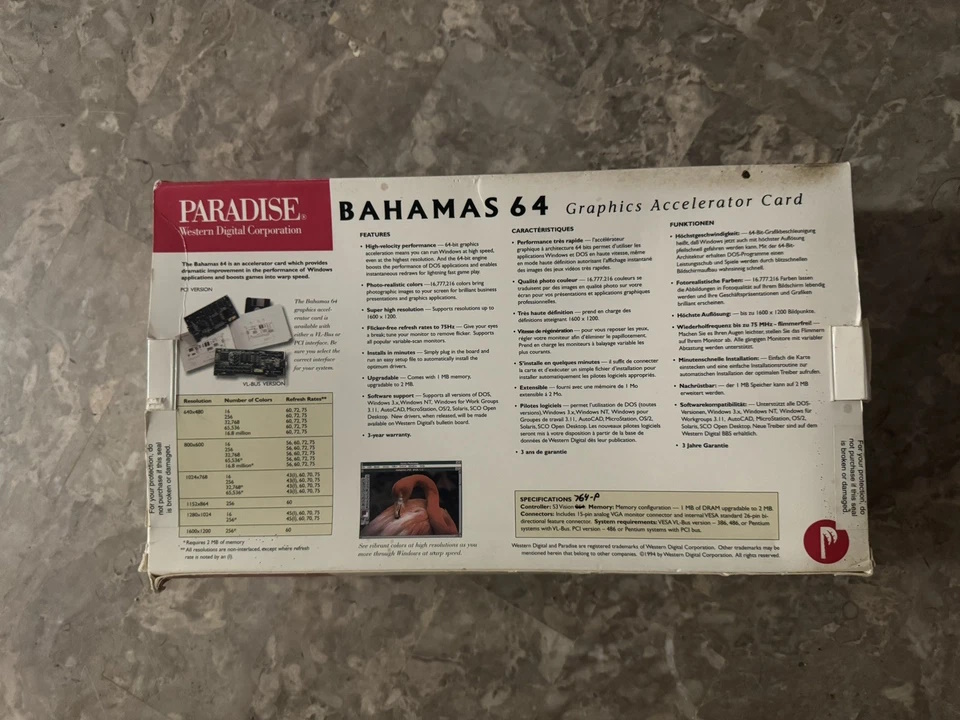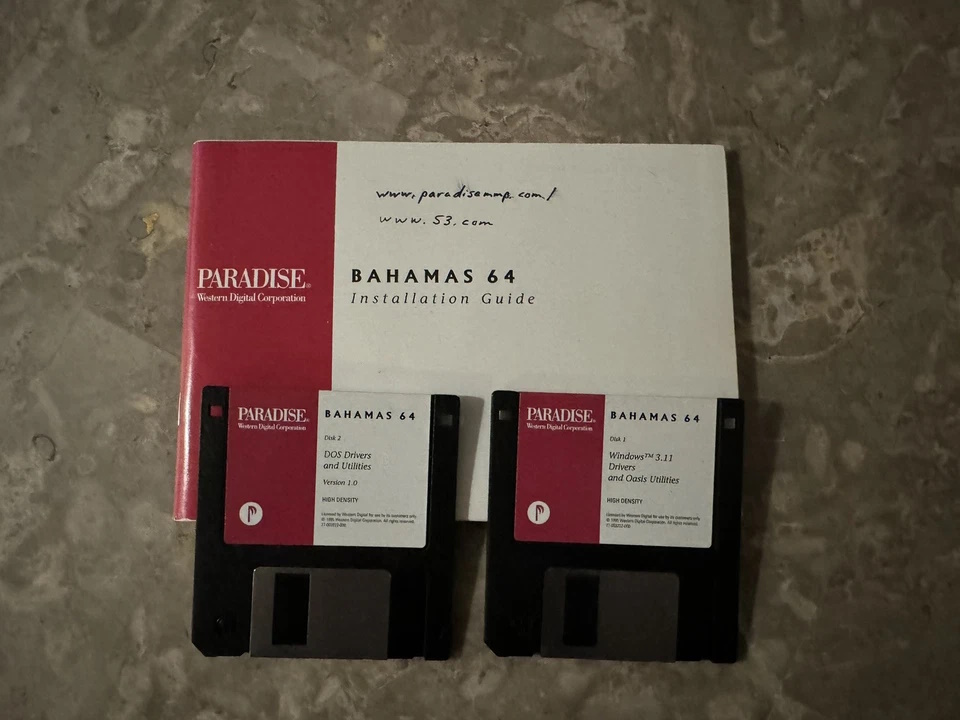Bahamas 64
The Bahamas 64 was the middle offering of new Paradise graphics cards released by Western Digital in 1994, and was based on the S3 Trio64 graphics accelerator chipset.
|
Released | August 1994 |
| Bus | VESA Local Bus or PCI | |
| Chipset | S3 Trio64 (86C764) or S3 Vision864 (86C864) | |
| Standards | MDA, Hercules, CGA, EGA, VGA | |
| Memory | 1 or 2 MB DRAM | |
| Ports | 15-pin DSUB (RGB analogue out) | |
| RAMDAC | Integrated (135 MHz) | |
| FCC ID | JDF-764VL-001 | |
| Price | At launch: $199 (1 MB) or $299 (2 MB) | |
| See Also | Bali 32/64, Barbados 64 |
It was a 64-bit DRAM-based accelerator card for Windows. Based around the S3 Trio64 graphics chipset, it featured hardware cursor, BitBLT, pattern fills, short stroke vector and line draws in hardware. A PCI-based version was released first called the Bahamas 64, and went on sale in August 1994, one month before the VESA Local Bus version which was called Bahamas 64VL.
The 1 MB variant could reach resolutions of up to 1,280 by 1,024 in 256 colours and at a refresh rate of 60 Hz. The 2 MB one could attain 1,600 by 1,200.
It was sold alongside the lower end Bali 32 graphics card (also available in VLB and PCI) which had just 1 MB of DRAM video memory (upgradable to 2 MB) and retailed for $99. Meanwhile at the top end was the Barbados 64, which was only available in PCI form, but came with 2 MB of VRAM and retailed for $299. Western Digital called this trio their new "island line", and they all came with Oasis software utilities that enabled picture-in-picture capabilities as well as switching resolutions and refresh rates on the fly.
Board Revisions
Just two board revisions are known for the Bahamas 64VL: A and A1.
Competition
In the Media
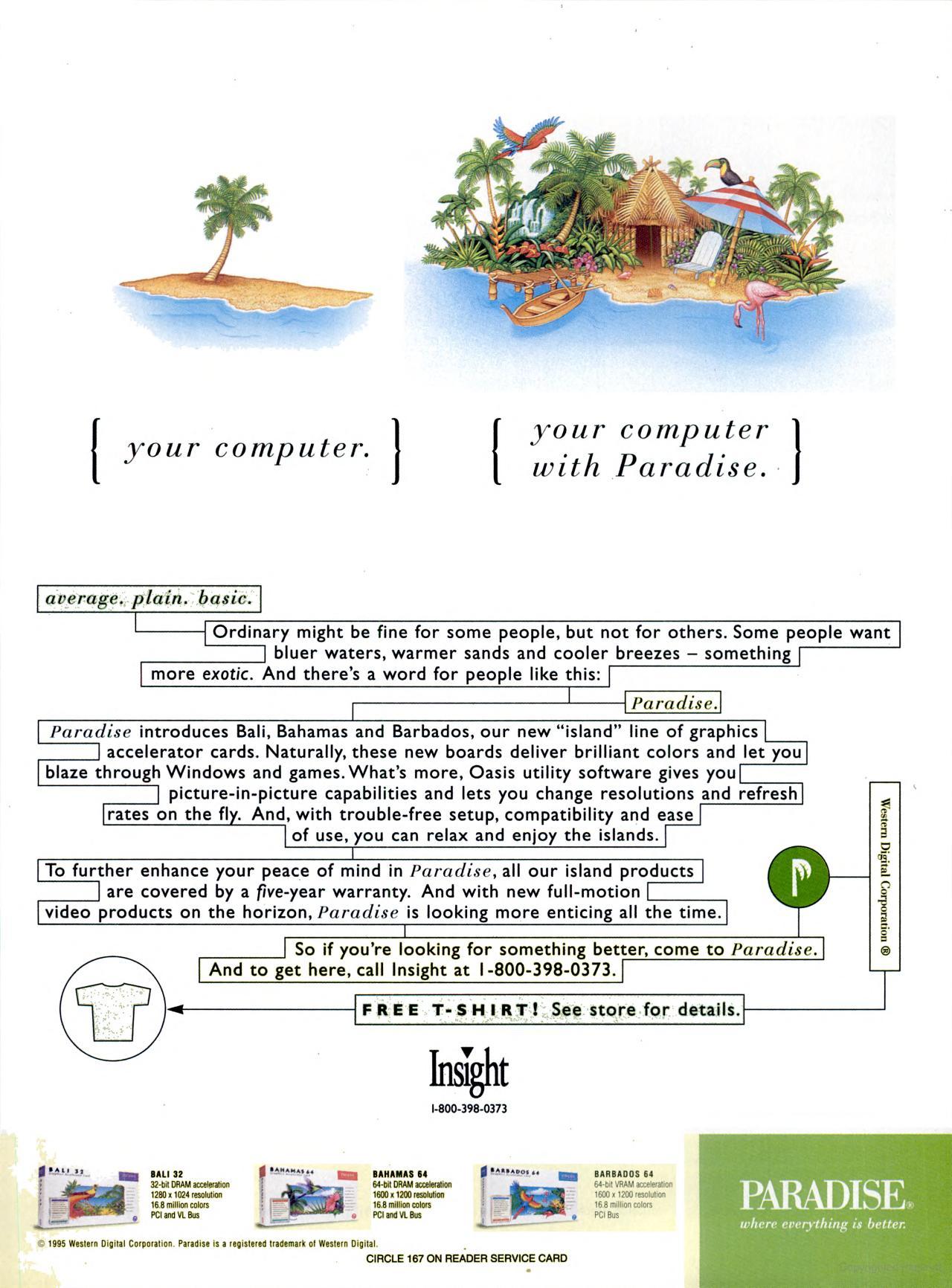
An advert for the Bali, Bahamas and Barbados cards, May 1995
"When looking for a graphics accelerator, 'extended features', 'low price' and 'top speed' are the shopper's watch words. Unfortunately, none of these phrases apply to the $299 Western Digital Paradise Bahamas 64 PCI. Compared with other DRAM-based adapters using the S3 Vision864 accelerator chip, the Paradise's price is relatively high, its performance undistinguished, and its features slight.
Nearly identical in hardware configuration to other PCI adapters using the same chip set, the Paradise relies on a basic DOS program to install software drivers. On our tests, installation of the Paradise was uneventful. However, the necessity of using Windows' Setup to change drivers and using a DOS utility to set vertical refresh rates seemed an unnecessary burden. No special Windows
utilities are supplied, but the Paradise is capable of higher noninterlaced resolutions than many of its competitors.
The board can reach a maximum resolution of 1,600-by-1,200 with 256 colors and a 60-Hz vertical refresh. A more ergonomic refresh rate of 75-Hz is available in 1,280-by-1,024 at the same color depth, while 16.7 million colors can be displayed
in 800-by-600 mode at 75-Hz, as well.
On 24-bit color WinBench tests, the Paradise was not one of the stellar performers. However, on the applications-based Winstone
test, it managed respectable scores among the tightly grouped results. On other tests with lesser color requirements, the Paradise board held steady with the majority of PCI entrants and turned in results in line with other Vision864-based DRAM boards.
Generally, Western Digital puts together a fairly respectable package. The accompanying owner's manual, for example, offers all the instructions necessary for even the most inexperienced user. By this fall, Western Digital plans to release a VLB version of the card and add a zooming package and a new group of Windows utilities. As it stands, though, without additional software features and a lower price, the Paradise isn't very attractive."
PC Magazine, December 1994
Setting it Up
Downloads
Operation Manual Get in touch if you can provide this missing item! |
DOS & Windows 3.1x Drivers DOS and Windows 3.1x display drivers. |
Oasis Drivers for Windows 3.1x Oasis drivers for Windows 3.1x version 964v1.00 |
Windows 95 Drivers Windows 95 display drivers for Bahamas |
More Pictures
.jpg)
.jpg)
.jpg)
.jpg)
.jpg)
All images shown for this card are courtesy of Andrew Welburn from Andy's Arcade.
.png)
